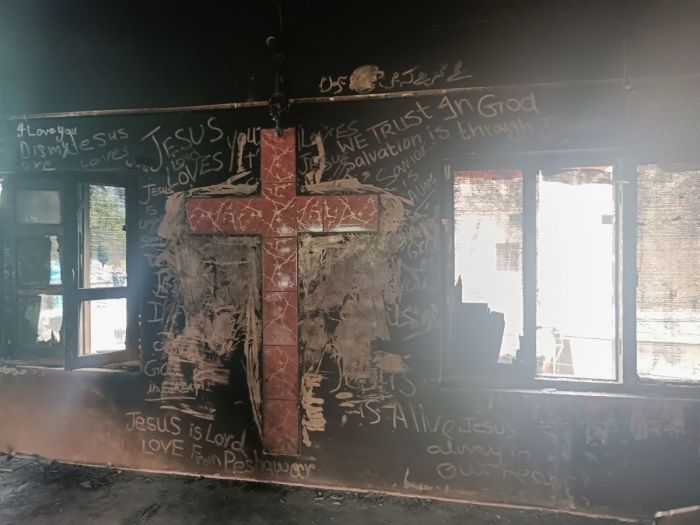Christian man sentenced to death over TikTok video sparks outcry

A young Christian man in Pakistan has been sentenced to death for allegedly uploading a blasphemous video to TikTok.
Ahsan Boota Masih, 27, was arrested after authorities claimed that his account contained an image of a blasphemous letter that helped trigger the 2023 Jaranwala riots.
According to the First Information Report (FIR) filed by police in August 2023, officers conducting security checks observed a TikTok account reposting the blasphemous letter. A trace of the account led to Masih. The FIR stated that the content severely offended the religious sentiments of the local community, resulting in the blasphemy charge.
On June 29, an anti-terrorism court convicted Masih and sentenced him to death under Section 295-C of the Pakistan Penal Code, which prescribes the death penalty or life imprisonment for defiling the name of the Prophet Muhammad. In addition to the death sentence, Masih was sentenced to 10 years of imprisonment and fined 500,000 Pakistani rupees ($1,795 USD).
During the unrest in Jaranwala, over 25 churches were burned, and homes belonging to Christian families were looted and destroyed by rioters. The video in question surfaced days after the turmoil, leading to Masih’s arrest under Pakistan’s stringent anti-blasphemy laws.
Masih’s family vehemently denies the allegations and is seeking justice from a higher court, arguing that the verdict was reached without a thorough investigation and under significant religious bias.
“I believe the court order contradicts the values of fair justice and negates the minority rights given in the constitution of the country for religious minorities,” said Yousaf Masih, Ahsan’s brother. “This case was ‘State versus my brother,’ in which the primary accusers were local police officers who leveled these allegations against him while they were watching TikTok videos, at midnight, while on duty.”
“Ahsan is a hardworking and focused individual,” Yousaf added, “He worked as a laborer in a brick kiln during the day and as a motorcycle mechanic at a local workshop in the evening.”
Yousaf claimed that a dispute over motorcycle payments sparked the ordeal. Ahsan had helped a Muslim friend purchase a motorcycle on installments from a local bank, but when the acquaintance stopped making payments, Ahsan asked him to return it. In retaliation, Yousaf alleges, the friend orchestrated a plan against his brother.
“The blasphemous TikTok video shared from his account was not posted by Ahsan himself,” Yousef said. “His friends, who took his phone without his knowledge, used it to frame him in a false case. They exploited his innocence, illiteracy, lack of digital literacy and naivety to settle their own grudge."
Khurram Awan, Ahsan's attorney, expressed dissatisfaction with the court's judgment, calling it contradictory to the constitution.
“Ehsan was accused of sharing the blasphemous letter related to the Jaranwala incident on his TikTok account, but the prosecution failed to provide evidence to the court,” said Awan. “No digital evidence was presented to prove that he posted it.”
Awan also cited a forensic report from the Punjab Forensic Laboratory, which confirmed that no blasphemous material was found on Ahsan’s phone.
“We lack the capacity and equipment to extract deleted files from the phone,” the Punjab Forensic Department admitted.
Awan has filed an appeal in the Lahore High Court.
“We are highly hopeful that the case will be re-examined under the light of untapped facts,” Awan said. “We are confident that, the death sentence will not be upheld, as there is no evidence provided against Ahsan.”
James Jacob is a writer for Global Christian Relief (GCR), America’s leading watchdog organization focused on the plight of persecuted Christians worldwide. In addition to equipping the Western church to advocate and pray for the persecuted, GCR works in the most restrictive countries to protect and encourage Christians threatened by faith-based discrimination and violence.





























